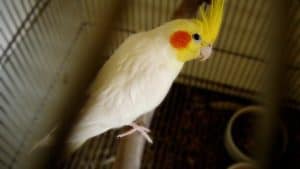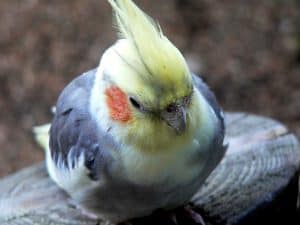As a passionate bird owner, I’ve learned that recognizing a cockatiels signs of illness early can be the difference between a minor hiccup and a serious health issue. These charming birds, known for their friendly and affectionate nature, can unfortunately be quite adept at hiding their discomfort. It’s crucial for us as caretakers to stay vigilant and know what to look for.
Over the years, I’ve picked up a few key indicators that something might be off with my feathered friend. From changes in their vocalizations to alterations in eating habits, each sign could be a subtle hint of underlying problems. Let’s dive into what these signs are and how we can spot them, ensuring our cockatiels stay happy and healthy for years to come.
What Are Cockatiels Signs of Illness?
Identifying signs of illness in cockatiels is crucial for their health. As an experienced bird owner, my advice is to closely monitor any deviations from their normal activities and appearances, which could indicate health issues.
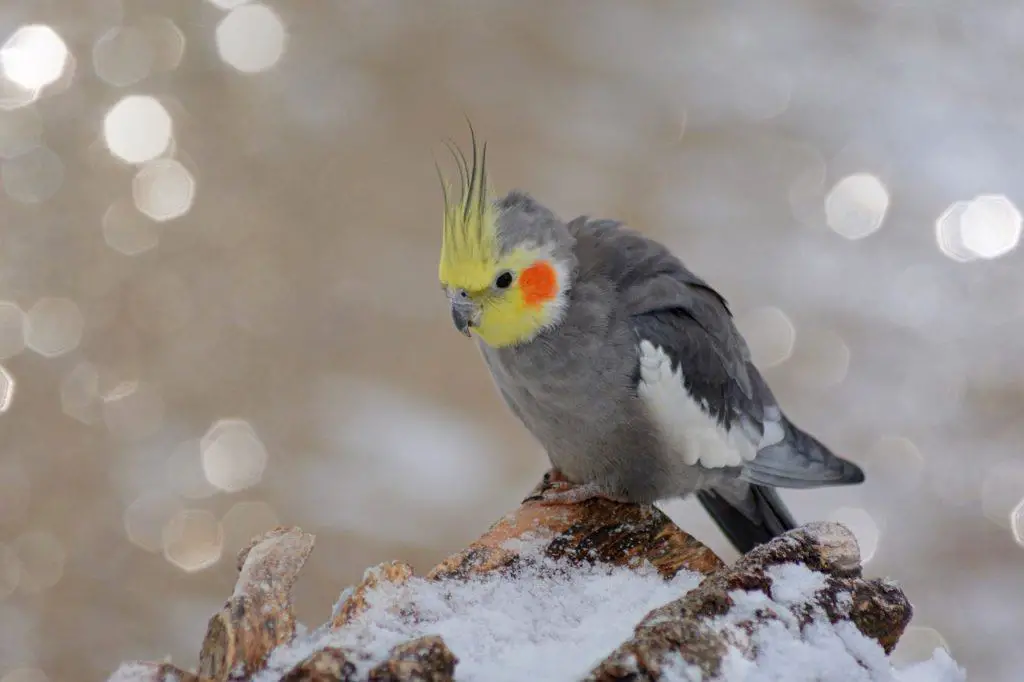
Behavioral Changes
Changes in behavior are often the very first sign of a sick cockatiel. Cockatiels, typically very active birds, display several behavioral alterations when they are not feeling well. Noticing these changes early makes a significant difference in their recovery.
- Decreased Activity: If a cockatiel, usually energetic, starts to show lethargy or less interest in their surroundings, this could be a symptom of illness.
- Change in Vocalization: A cockatiel that suddenly becomes either unusually quiet or begins to make noise excessively might be trying to communicate discomfort.
- Appetite Changes: Decreased appetite is a common sign that a cockatiel might be unwell. Observing how much a bird eats daily is essential since changes can signify health problems.
- Modification in Interaction: If a cockatiel that normally enjoys human interaction starts to isolate itself or reacts negatively to being touched, it may be experiencing discomfort or pain.
These behaviors, indicative of possible illness, warrant a visit to an avian vet for a thorough checkup.
Physical Symptoms
Physical symptoms in cockatiels provide clear indications of their health status. Recognizing these signs can help in addressing their medical needs promptly.
- Changes in Feathers: Healthy cockatiels have smooth, clean feathers. Any sign of ruffled, puffed-up feathers or bald patches can signal illness.
- Eye or Nasal Discharge: Any unusual discharge from the eyes or nostrils is a typical sign of possible respiratory problems or infections.
- Changes in Droppings: Healthy bird droppings are generally firm, and any change in consistency or color, like watery, green, or extremely dark droppings, can indicate health issues.
- Weight Changes: Detecting weight loss can be tricky, but observing any visible changes in body shape or if the keel bone (the ridge on a bird’s chest) becomes prominent, these are cause for concern.
By keeping a detailed observation of these symptoms, pet bird owners can take swift actions, ensuring their feathered friend receives appropriate veterinary care. If any of these symptoms appear, consulting with an avian veterinarian is advisable to prevent the illness from progressing and to provide birds with the necessary care for recovery.
Common Illnesses in Cockatiels
In my experience as a bird owner, I’ve learned that the well-being of our feathered friends often hinges on our ability to spot illnesses early. Here, I’ll outline some of the most common ailments in cockatiels, which every pet bird owner should be aware of.
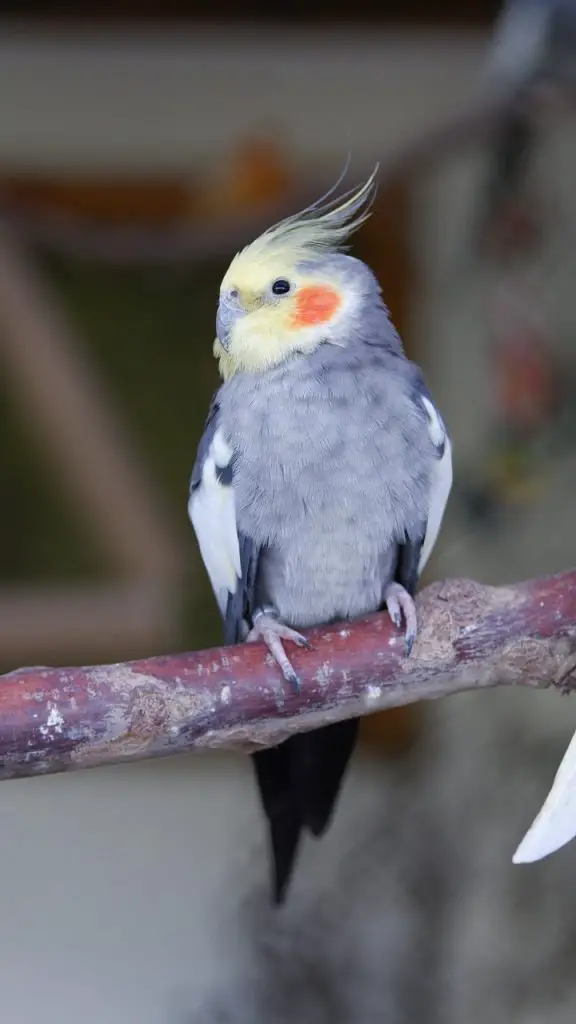
Respiratory Infections
Respiratory infections are prevalent among cockatiels and can manifest through symptoms such as tail bobbing, wheezing, and a change in the bird’s usual vocalizations. These infections often stem from bacterial, viral, or fungal causes. One notorious ailment is Psittacosis, often referred to as “parrot fever,” which not only affects the birds but can also be transmitted to humans.
Recognizing these signs early plays a critical role in the effective treatment of respiratory infections. Avian vets typically treat these conditions with antibiotics or antifungal medications, depending on the underlying cause. Keeping the bird warm and ensuring clean, fresh air can help alleviate symptoms during recovery.
Digestive Problems
Digestive issues in cockatiels can lead to noticeable changes in their droppings, which is often the very first sign noticed by pet owners. Healthy bird droppings typically consist of solid, coiled brown feces with clear urine and white urates. However, signs of illness might include watery feces, black coloration, or undigested food appearing in the stool. These symptoms could point towards conditions like fatty liver disease, which is influenced by a high-fat diet, or even gastrointestinal infections.
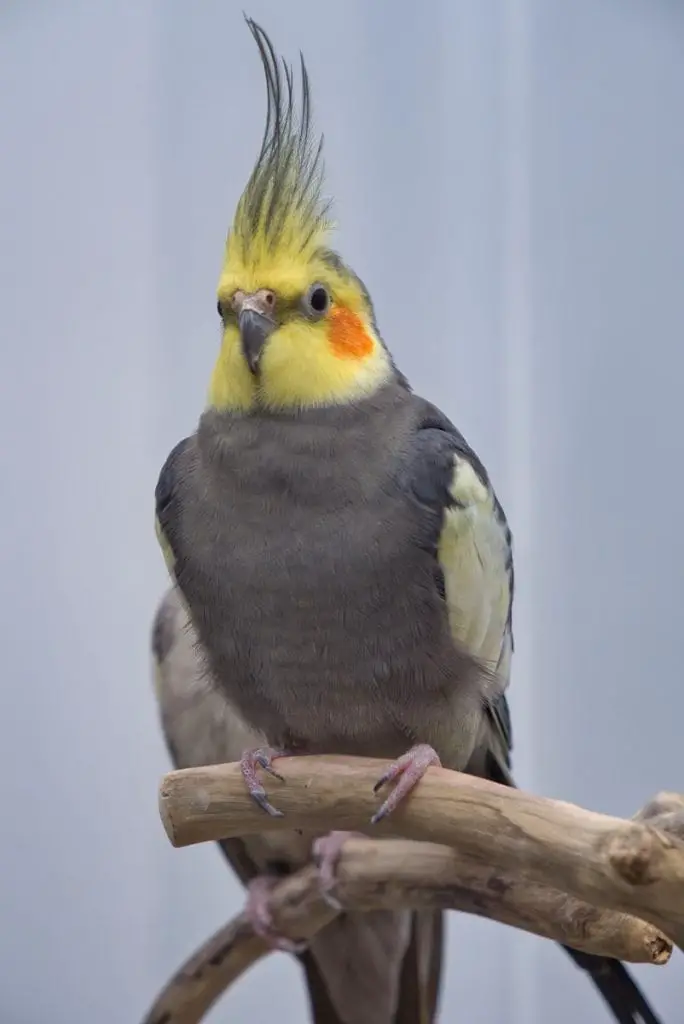
Treatment for digestive problems in cockatiels may involve dietary adjustments, prescribed by an avian veterinarian, to ensure a balanced intake of nutrients. Additionally, hydration and probiotics can aid in recovery, and in more severe cases, veterinary intervention might be necessary to administer fluids or medications.
By keeping a vigilant eye on these signs and consulting with an avian veterinarian when changes arise, I help ensure my cockatiels receive the care they need promptly, guarding their health and happiness.
Preventative Care for Cockatiels
Preventative care plays a pivotal role in maintaining the health of cockatiels. Proper surveillance and care can stave off common ailments that may afflict these charming birds.
Regular Veterinary Visits
Regular check-ups with an avian veterinarian are critical for early detection of illnesses in cockatiels. I recommend scheduling at least a yearly examination for your feathered friend. These visits allow avian vets to catch diseases before they manifest severe symptoms, such as respiratory problems or changes in eating habits. Besides physical examinations, avian specialists often conduct tests to ensure no underlying issues go unnoticed in your pet bird. These experts can monitor your cockatiel’s normal habits and quickly notice signs of deviation that might indicate health issues.
Proper Diet and Environment
A cockatiel’s diet heavily influences its health. A balanced diet consists mainly of pellets, supplemented by varied fruits and vegetables to ensure adequate vitamin intake. Occasionally, introducing protein sources like boiled eggs can benefit your cockatiel, but always in moderation to prevent fatty liver disease. It’s crucial to avoid avocado and chocolate, as they’re toxic to birds.
Maintaining an optimal living environment is also key. The habitat should be clean, spacious, and safe, with ample opportunities for your cockatiel to exercise and explore. Ensure the temperature is consistent, as sudden changes can stress them, making them more susceptible to illness. Providing toys and perches will help keep your cockatiel mentally and physically active. Stress reduction is vital since stressed birds tend to be prone to health issues like feather plucking and behavioral changes.
Recognizing the signs of illness in cockatiels is crucial for their health and longevity. As a pet owner, I’ve learned the importance of being vigilant and proactive. Ensuring your feathered friend receives the necessary care and attention is vital. Let’s keep our birds healthy and thriving by staying informed and attentive to their needs. Remember, a happy cockatiel is a healthy cockatiel!
Frequently Asked Questions
How can early detection of illnesses in cockatiels improve their health?
Early detection of illnesses in cockatiels is crucial as it can significantly improve the prognosis by allowing for timely and effective treatment, preventing complications that could lead to more severe health issues or even mortality.
What are the common ailments in cockatiels?
Common ailments in cockatiels include respiratory infections, characterized by symptoms like sneezing and nasal discharge, and digestive issues, which can cause changes in droppings and appetite. Early recognition and treatment of these ailments are vital for the bird’s health.
How can I tell if my cockatiel might be sick?
Signs that a cockatiel might be sick include poor feather condition, changes in eating or drinking habits, fluffed feathers appearing “fatter,” and less vocalization. Observe for any unusual behavior or physical changes and consult a vet if any are present.
What preventive measures can I take to protect my cockatiel from illnesses?
Preventative measures include regular veterinary check-ups, ensuring a balanced diet rich in pellets and fruits, and maintaining a safe and stimulating environment. These steps help support a strong immune system and reduce the risk of illnesses.
Why is a balanced diet important for the health of cockatiels?
A balanced diet is crucial because it ensures that cockatiels receive all the necessary nutrients to maintain a strong immune system, healthy feathers, and overall vitality. Pellets, fruits, and occasional greens provide essential vitamins and minerals for their wellbeing.
If you’re eager to deepen your understanding of cockatiel behavior and care, these comprehensive articles are essential reading. Learn to identify and address stress in your feathered friend with “How to Recognize and Treat Cockatiel Anxiety.”
Uncover the reasons behind common behaviors in “Why Does a Cockatiel Stand on One Leg?” and understand the impact of dust with “Is Cockatiel Dust Harmful?.” Discover the fascinating purpose of their crests in “Why Do Cockatiels Have Crests?,” and find effective strategies in “How to Tame a Cockatiel That Bites.” Each article provides valuable insights to ensure your cockatiel’s happiness and health.


